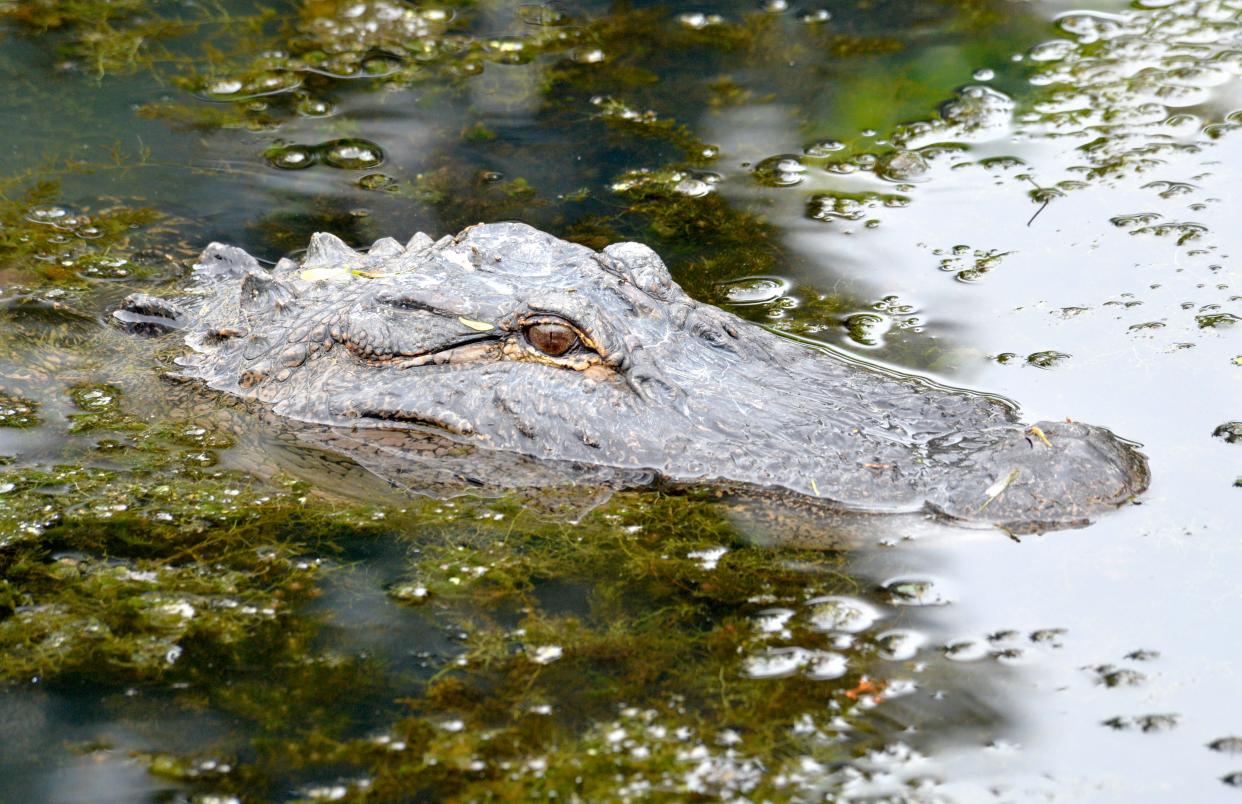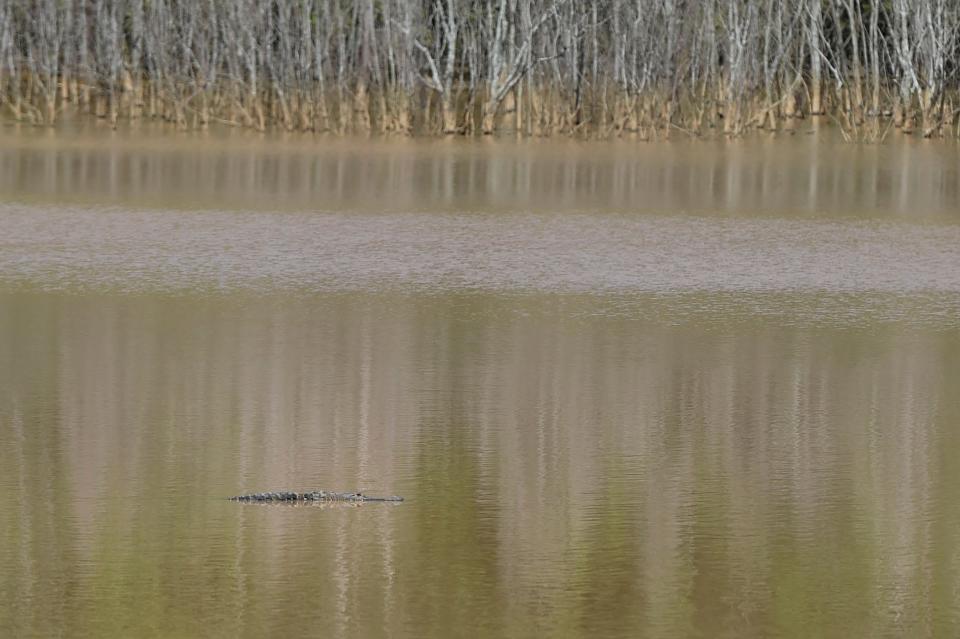Experts offer tips on wildlife encounters following Augusta alligator sighting

After an 8-foot alligator was spotted Saturday crossing Doug Bernard Parkway in Augusta, the Department of Natural Resources has offered tips for Augusta locals who encounter different types of wildlife, including gators, snakes and deer, this summer.
I.B. Parnell, a wildlife biologist with Georgia DNR, said while photos of the alligator were circulating on social media over the weekend, the gator was never reported to the agency.
If the reptile was reported, Parnell said the query would have been referred to the Richmond County Sheriff's Office.
"If it's just an alligator crossing a road, then the sheriff's office is the most appropriate group to call because all we would do is let it cross," Parnell said. "It's more of a traffic safety issue than it is anything else. All we want is for the alligator to finish going from one side to the other; just let it do its normal thing."
Here are some other potential encounters locals may have with wildlife this season:

Types of Augusta wildlife you'll see this summer
Parnell said Augustans may notice an uptick in reptile sightings this summer because of their nature and the fact locals are outdoors more often.
"Reptiles are cold blooded, so the warmer the temperature gets in the late spring and summer, the more active they become," he said. "They don't technically hibernate during the winter, but they do have long periods of inactivity so they're not going to be very highly visible. The other part is that we're typically more active during the spring and summer. ... Because we're active and the critters are active, those two lines intersect a lot more."
He added the DNR also receives a lot of calls this time of year for deer fawns.
"Deer are starting to be born and calls really picked up about a week ago," Parnell said. "They do not stay with the does this time of year. They are born and then the doe feeds them, leaves the area, and the doe is supposed to hide itself. The doe will come back to the last place she fed the fawn, she'll make a call, and the fawn will get up from its hiding spot. It will go to her to feed and then they separate again."
He added the pair will go through that same process multiple times a day.
"If you see one that's hiding under the bushes in your front yard, it has not been abandoned," Parnell said. "That is just a hiding spot that the fawn chose to be in. As long as it's not hurt, leave it alone and let the does and fawns do their thing."
Fatal Augusta shooting: Woman killed, suspected gunman found dead after shooting in Augusta medical district
When and how to contact DNR
Anyone trying to reach DNR during normal business hours, 8 a.m. to 4 p.m. Monday through Friday, can call their regional office in Thomson at 706-595-4222.
If there is a wildlife emergency after hours, locals can call 1-800-241-4113.
However, Parnell clarified that a simple sighting is not a wildlife emergency.
"So if you see an alligator, coyote or something like that in the evening, that's not what we would consider a wildlife emergency," he said. "If there's a human health risk or there's an injured animal, we respond to those. If there is something digging in your yard at 2 a.m. on a Friday night, everyone doesn't need to be woken up to tell you that you might have an armadillo."
This article originally appeared on Augusta Chronicle: What to do, who to call when encountering wildlife in Augusta

